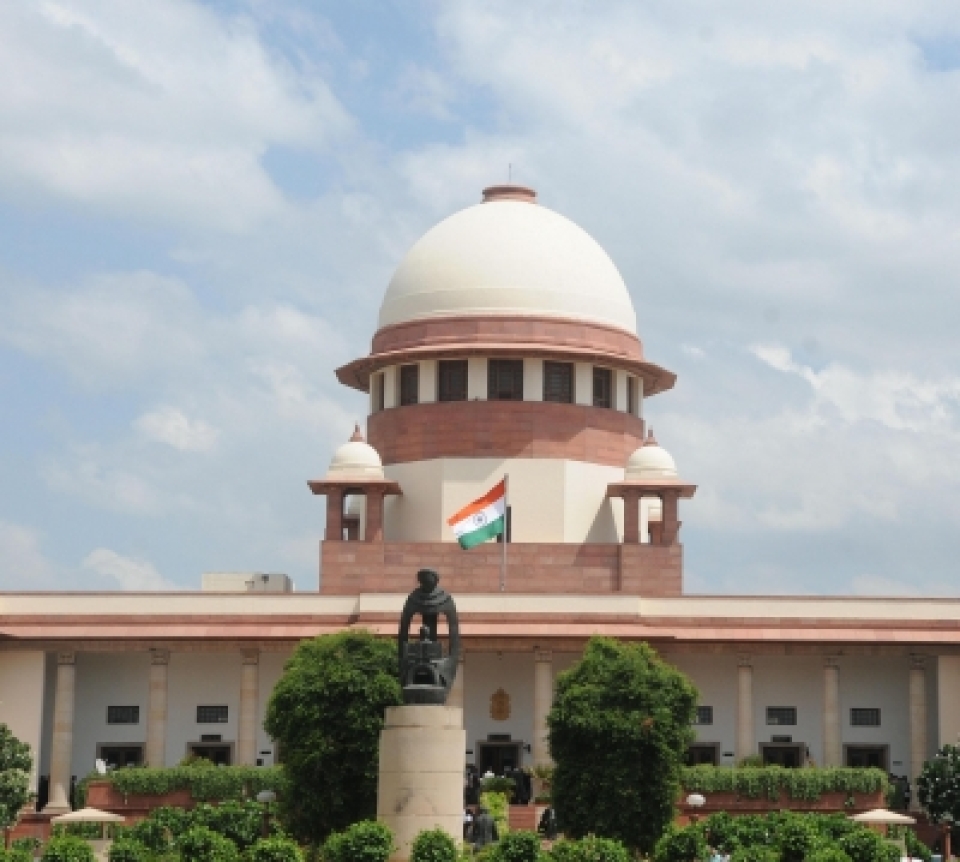New Delhi: The Supreme Court Wednesday pulled up the Punjab and Haryana governments over the non-prosecution of violators found guilty of stubble burning while summoning the state chief secretaries to appear before it on October 23 for an explanation.
A bench of Justices Abhay S Oka, Ahsanuddin Amanullah and Augustine George Maish pointed out “complete insensitivity” on the part of both states, directing the Commission for Air Quality Management (CAQM) to take penal action against both the government officials for the failure to take action against the violators.
Stubble burning is a major contributor to the rising pollution levels in the national capital.
The top court was upset over Punjab and Haryana governments not taking taken any steps to implement the directions issued by the CAQM in the national capital region (NCR) in June 2021 to stop stubble burning.
“This is not a political matter. If the chief secretary is acting at somebody’s behest, we will issue summons against them as well. Next Wednesday (October 23) we are going to physically call for the chief secretary and explain everything. Nothing has been done, same is with the Punjab government. The attitude is of complete defiance,” the bench remarked.
Slamming the Punjab government, the top court said not even a single prosecution has been carried out in past three years and it was only tolerating breaches.
“Why are you shy of prosecuting people. This is not a political matter. This is a matter of implementation of statutory directions of the commission. No political considerations will apply. There is defiance on your part. You are encouraging people to commit breaches. You are only imposing nominal fines. ISRO (Indian Space Research Organisation) is telling you the location of the stubble burning and you say fire location is not found,” the bench said.
Punjab Advocate General Gurminder Singh submitted it was difficult to implement the directions on the ground and the authorities made “red entries” in the revenue records of the farmers who caused fires at farms.
The apex court also took exception to a purported incorrect statement of the Punjab government of having submitted a proposal to the Central government for the grant of funds to provide a tractor along with driver and fuel to small farmers.
It said no endeavour has been made by the Punjab government to seek funds from the Centre for ensuring tractors to farmers.
On the CAQM, the Supreme Court called it a toothless tiger that only passed directions without any implementation. The bench noted the Union government was at fault for not choosing renowned experts in the field of pollution as members of CAQM.
“We have great respect for the members and their academic qualifications but they are not qualified or experts in the field of air pollution,” the bench said.
Additional Solicitor General Aishwarya Bhati said that one of the members had been a chairperson of the Madhya Pradesh Pollution Control Board for six years.
But the bench remarked, “Heading pollution control board of states in no qualification. You know how pollution control boards function.”
The judges subsequently suggested that the CAQM should engage with some expert agency to address the issue of air pollution.
Slamming the Commission for Air Quality Management for failing to control instances of stubble burning in NCR and adjoining areas, the SC had said it had taken no efforts to implement its direction to prevent such incidents.
The apex court had earlier rapped CAQM over its failure to curb air pollution in Delhi due to crop residue burning in the neighbouring states and said it needs to be proactive in its approach. The CAQM needs to exercise its power under the Commission for Air Quality Management in National Capital Region and Adjoining Areas Act, 2021, it added.
On August 27, it termed the pollution control boards of Delhi and NCR states “ineffective” due to staff shortage and asked the body responsible for air quality management in the national capital and adjoining areas to explain how it proposed to tackle pollution and stubble burning which spiked with the onset of winter.
The top court had wondered how the sub-committee on safeguarding and enforcement to be constituted by CAQM would function owing to the lack of representation from the pollution control boards of Delhi, Punjab, Haryana, Rajasthan and Uttar Pradesh due to vacancies.
It directed the five NCR states to fill up the vacant posts urgently, preferably before April 30, 2025.
The top court had directed the CAQM chairperson to file an affidavit explaining the steps to curb air pollution, often attributed to the burning of paddy straw in states adjoining the national capital.
PTI
